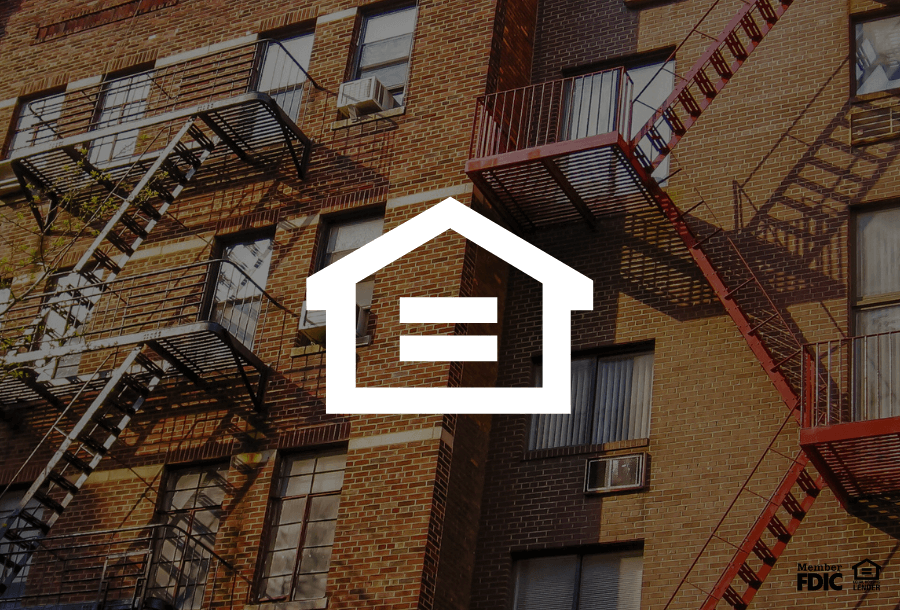
Contact Us
Bank Routing Number
107001481
Bank by Mail/General Mail
PO Box 26458
Kansas City, MO 64196
Deposit Only Mailbox
PO Box 26744
Kansas City, MO 64196
Phone Number
1-877-712-2265
Download our app
Access your
accounts here.
accounts here.

Grab your phone and scan the code to download!
featured
2024-04-05
People & Culture
published
The History of Fair Housing in the United States

-
-
Fair housing, the concept that all individuals should have equal access to housing opportunities, is a fundamental aspect of civil rights in the United States. Yet, the journey towards fair housing has been fraught with struggle, discrimination, and landmark legislative battles. To commemorate National Fair Housing Month, we explore how fair housing has evolved in the United States.
The Roots of Discrimination in Housing:
The history of fair housing in the US is deeply intertwined with the legacy of slavery and institutionalized racism. Following the Civil War, the Reconstruction era saw some progress in terms of housing equality, but discriminatory practices persisted. Jim Crow laws enforced racial segregation, relegating African Americans to substandard housing, and denying them access to certain neighborhoods through redlining, denying access to credit because of where they live even if they are personally qualified for loans, and discriminatory restrictive covenants that prohibited ownership or occupancy based race or national origin.
Fair Housing Pioneers of Change:
The fight for fair housing began gaining momentum in the early 20th century, led by courageous individuals and organizations. Activists like Dorothy Height, A. Philip Randolph, and Rev. Dr. Martin Luther King, Jr. highlighted housing inequality as a critical civil rights issue. Organizations such as the National Association for the Advancement of Colored People (NAACP) and the National Urban League advocated for fair housing legislation and challenged discriminatory practices in the courts.
Passing the Fair Housing Act:
The struggle for fair housing reached a turning point with the passage of the Fair Housing Act in 1968. In prior years, Congress considered the fair housing bill, but could not gather a large enough majority to pass it. However, when Rev. Dr. King, Jr. was assassinated, President Lyndon B. Johnson used this national tragedy to push for the bill’s quick approval. Finally, in April, it was signed into law by President Johnson. This historic legislation prohibited discrimination in housing based on race, color, religion, or national origin. The Fair Housing Act was a monumental achievement, representing a significant step towards equality and justice in housing.
Challenges and Progress:
Despite the passage of the Fair Housing Act, challenges to fair housing persist. Discriminatory practices continue to affect marginalized communities, including people of color, LGBTQ+ individuals, people with disabilities, and others. However, there have been significant strides forward. Amendments to the Fair Housing Act have expanded protections to include additional categories such as familial status and disability. Additionally, enforcement efforts by government agencies and advocacy groups have helped combat housing discrimination and promote equal access to housing opportunities.
Looking Ahead:
While progress has been made, the quest for fair housing is far from over. Addressing systemic inequalities requires ongoing vigilance and dedication. Education, advocacy, and community engagement are essential tools in the fight for housing justice.
The history of fair housing in the United States is a story of struggle, perseverance, and progress. From the dark days of segregation to the passage of landmark legislation, the fight for housing equality has shaped the landscape of civil rights in America. While challenges remain, the commitment to fair housing continues to inspire individuals and communities to strive for a more just and inclusive society. As we reflect on the past and look towards the future, let us recommit ourselves to the ongoing pursuit of fair housing for all.
At Academy Bank, we understand that fair housing requires an ongoing commitment in our workplace and our communities. Our People & Culture program is a critical part of our culture. Established in 2020, the program is led by a cross-functional team of Associates, and focuses on talent, marketplace, operations, community, and awareness. For more ways that Academy Bank may help you realize your dream of home ownership, reach out to one of our exceptional loan officers.
Member FDIC
